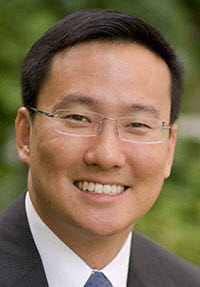Abstract
Excerpted From: Philip Lee, Critical Race Thinking in a Pro-black Space: an Asian American Law Professor's Reflections on Teaching at an HBCU, 68 Howard Law Journal 71 (Fall, 2024 (159 Footnotes) (Full Document).
 Historically Black colleges and universities (HBCUs) have been the subject of both scholarly criticism and praise. Some of these colleges have shut down in recent years. Many HBCU law schools could face the same fate due to bar passage and other issues. However, with the recent Supreme Court decision in Students for Fair Admission, Inc. (SFFA) v. Harvard invalidating long-standing race-conscious admissions policies in higher education, HBCUs have become even more relevant in the educational landscape. As admission to historically White institutions (HWIs) become more elusive and as racial diversity at these places plumets, HBCUs are expected to admit even more people of color and continue their powerful tradition of educational access.
Historically Black colleges and universities (HBCUs) have been the subject of both scholarly criticism and praise. Some of these colleges have shut down in recent years. Many HBCU law schools could face the same fate due to bar passage and other issues. However, with the recent Supreme Court decision in Students for Fair Admission, Inc. (SFFA) v. Harvard invalidating long-standing race-conscious admissions policies in higher education, HBCUs have become even more relevant in the educational landscape. As admission to historically White institutions (HWIs) become more elusive and as racial diversity at these places plumets, HBCUs are expected to admit even more people of color and continue their powerful tradition of educational access.
I taught at an HBCU for ten years. In my experience, even though they face serious challenges, HBCU law schools continue to have much value. This Article is my personal account of how teaching at an HBCU transformed my thinking about race and justice in America and the powerful contributions that these institutions continue to make for their students, the people who work at them, and for our society.
This Article proceeds in four parts. Part I discusses my experiences applying for a professorship and teaching at an HBCU law school. I then describe the important lessons that I have learned during that time. Part II describes how I realized that race and law were socially constructed concepts. Part III details how I learned that what we understand as governing equal protection principles were socially constructed by mostly White male decisionmakers to the detriment of people of color. Finally, Part IV explains how I came to know that racial identity was also socially constructed and can be re-constructed in more empowering ways.
[. . .]
I learned many things teaching at an HBCU for ten years. The lessons run deep and are particularly relevant in a post-SFFA v. Harvard world. I came to understand that race and the law have been socially constructed and this process has been imbued with asymmetrical power relations. I also learned that equal protection principles have been socially constructed by mostly White male decisionmakers to serve their own interests. Finally, I came to know that racial identity has been socially constructed and could be re-constructed in anti-racist ways. There is something special about an HBCU--a student-centered space of Black empowerment--as a place to teach and learn these things. Students and teachers of all backgrounds can benefit from such a place, as can society as a whole.
Professor of Law, St. John's University School of Law; formerly at UDC David A. Clarke School of Law (2013-2023); B.A. Duke University, 1996; J.D. Harvard Law School, 2000; Ed.M. Harvard Graduate School of Education, 2012; Ed.D. Harvard Graduate School of Education, 2013.


